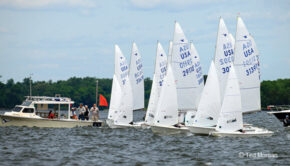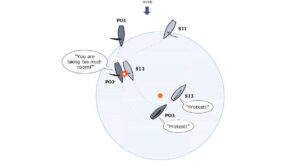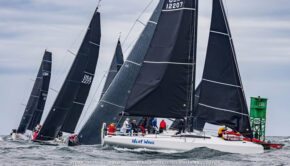Misconduct Guidance: What is misconduct?
Published on December 5th, 2017
Dealing with misconduct is probably the least pleasurable part of the work of race officials but an important part that must not be ignored. There is considerable evidence that misconduct in the form of bad behaviour has a detrimental effect on our sport, even causing some to choose another way to spend their time.
In the Racing Rules of Sailing, Rule 69 covers misconduct and a guide has been published to help deal with it promptly, fairly and following established rules and practices. Here’s an excerpt:
MISCONDUCT
What is Misconduct?
• Misconduct is defined by rule 69.1(a) as being conduct which:
1. Is a breach of good manners, sportsmanship or unethical behaviour; or
2. Conduct that may bring the sport into disrepute.
• There is no longer any requirement for misconduct to be ‘gross misconduct’. This means the level at which conduct becomes misconduct is much lower than under previous editions of the rules.
• This has been a deliberate policy decision of World Sailing and intended to ensure a greater range of bad behaviour is addressed by protest committees. In order to ensure that competitors are still treated appropriately and proportionately, greater flexibility has been given to protest committees and other disciplinary bodies.
Examples of Misconduct
• All cases must be judged on the specific facts of a situation and bearing in mind all relevant circumstances.
• The following are examples of misconduct. They are not exhaustive:
1. Engaging in any illegal activity (e.g. theft, assault, criminal damage)
2. Engaging in any activity which brings the sport into disrepute
3. Bullying, discriminatory behaviour and intimidation
4. Physical or threatened violence
5. Deliberate damage or abuse of property (including a boat)
6. Deliberately disobeying the reasonable instructions of event officials
7. Repeated breaches of rule 2
8. Inciting others to break rule 2
9. Deliberately breaking a racing rule with the intention of gaining an advantage
10. Deliberate interference with another competitor’s equipment
11. Repeating a measurement offence (intentionally or recklessly)
12. Lying to a hearing
13. Other forms of cheating such as falsifying personal, class or measurement documents, entering a boat known not to measure, missing out a mark to gain places etc.
14. Foul or abusive language intended to offend (see below)
Foul or abusive language
• Bad language (including that not directed towards an official) must be carefully judged in the context.
• If you are uncomfortable with the language being used, then action should be taken. It is quite proper for clubs and organisers to make clear before an event that the use of inappropriate language will lead to rule 69 action. If the organisers have made this statement, then the protest committee should be prepared to enforce the standards expected.
• Equally, foul or abusive language at youth or junior events should not be tolerated. Events which are televised or streamed live should also not tolerate bad language.
• However, if an event or club has tolerated such language in the past, then a single incident of bad language should not trigger rule 69 action. This is not to condone such a language, but World Sailing supports the principle that clubs and events must set and improve their own standards.
• Foul and abusive language towards race officials should be considered under the dissent guidance found in Appendix F.









 We’ll keep your information safe.
We’ll keep your information safe.